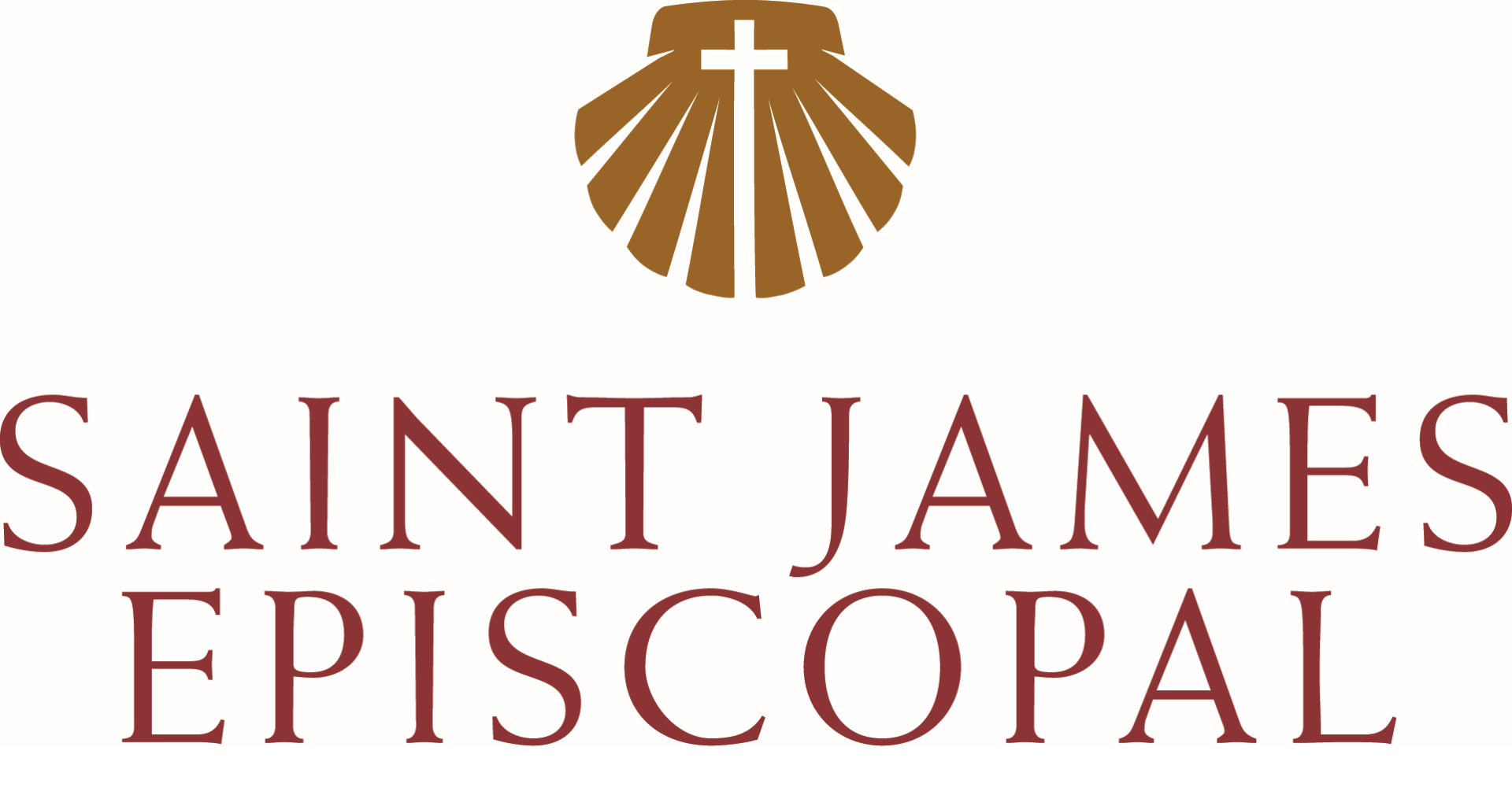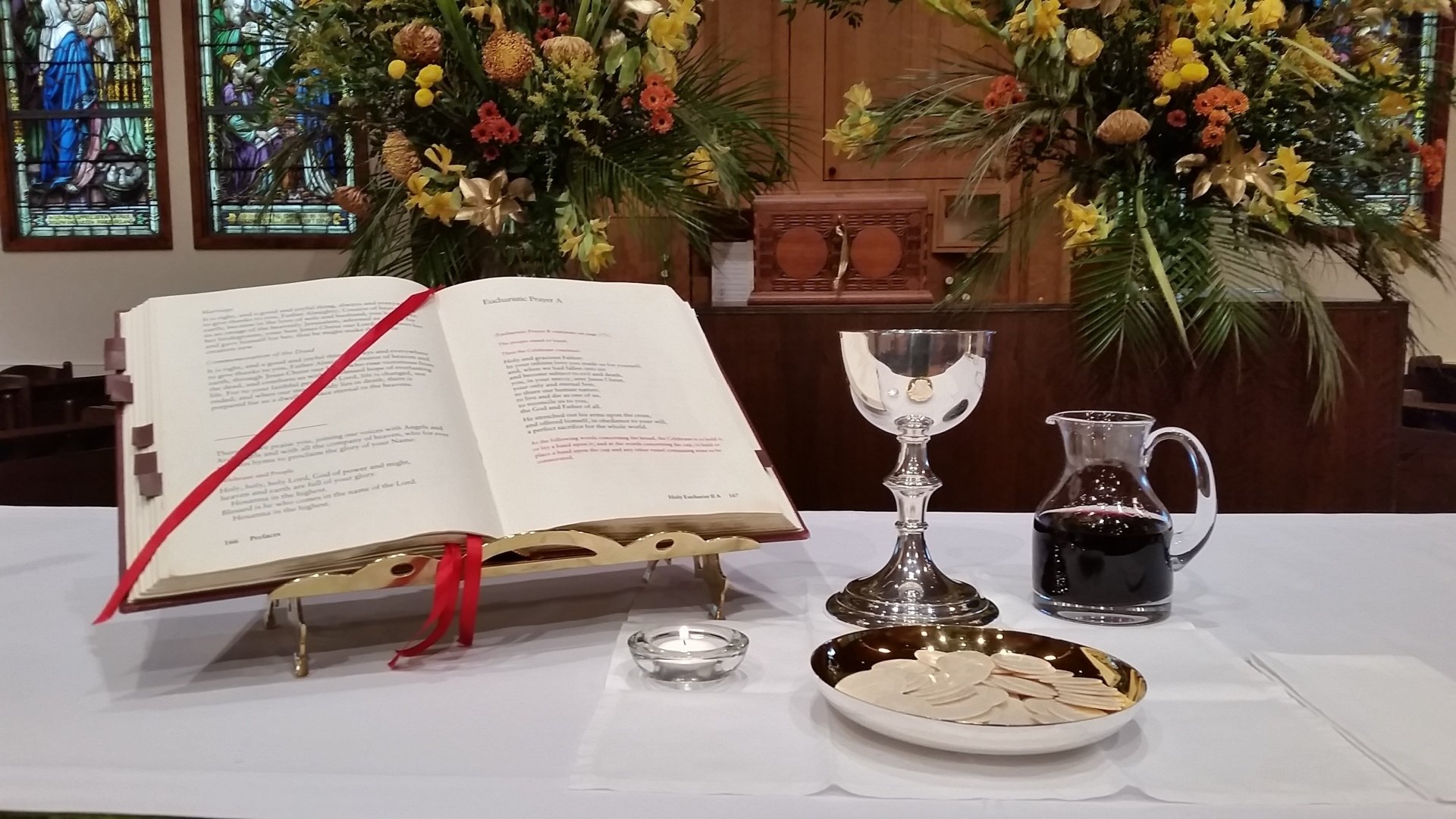The sacrament of Christ's body and blood, is the principal act of Christian worship. The term "eucharist" is derived from from the Greek word for "thanksgiving." Jesus instituted the eucharist on the night when he was betrayed. At the Last Supper he shared the bread and cup of wine at a sacred meal with his disciples. He identified the bread with his body and the wine with his blood of the new covenant. Jesus commanded his disciples to "do this" in remembrance of him (see 1 Cor 11:23-26; Mk 14:22-25; Mt 26:26-29; Lk 22:14-20).
Christ's sacrifice is made present by the eucharist, and in it we are united to his one self-offering (BCP, p. 859). The Last Supper provides the basis for the fourfold eucharistic action of taking, blessing, breaking, and sharing.
The Episcopal Church believes in the Real Presence of Christ in the sacrament. Christ's body and blood are really present in the sacrament of the eucharist and received by faith. Christ's presence is also known in the gathered eucharistic community. The 1991 statement of the Anglican-Roman Catholic International Commission notes, "The elements are not mere signs; Christ's body and blood become really present and are really given. But they are really present and given in order that, receiving them, believers may be united in communion with Christ the Lord." A classic Anglican statement attributed to John Donne (or to Queen Elizabeth I) and included in The Hymnal 1982 (Hymn 322) is "He was the Word that spake it, he took the bread and brake it, and what that Word did make it, I do believe and take it." In Eucharistic Prayer A of Rite II, the celebrant prays that God the Father will sanctify the gifts of bread and wine "by your Holy Spirit to be for your people the Body and Blood of your Son, the holy food and drink of new and unending life in him" (BCP, p. 363). The Catechism notes that the inward and spiritual grace in the eucharist is "the Body and Blood of Christ given to his people and received by faith" (BCP, p. 859).
Belief in the Real Presence does not require an attempt to explain how Christ came to be present in the eucharistic elements. Episcopalians therefor find the Roman Catholic doctrine of transubstantiation unnecessary and limiting. Rather, Episcopalians focus on and celebrate the Paschal Mystery - the mysterious workings of the Holy Spirit that changes the bread and wine into the body and blood of Christ for the faithful.
All baptized Christians, regardless of tradition, marital status or age, are invited to receive the sacrament at St. James.

